Want butterflies in your yard? Try these 7 tips
Learn how to create a butterfly-friendly garden and keep these colorful visitors coming back
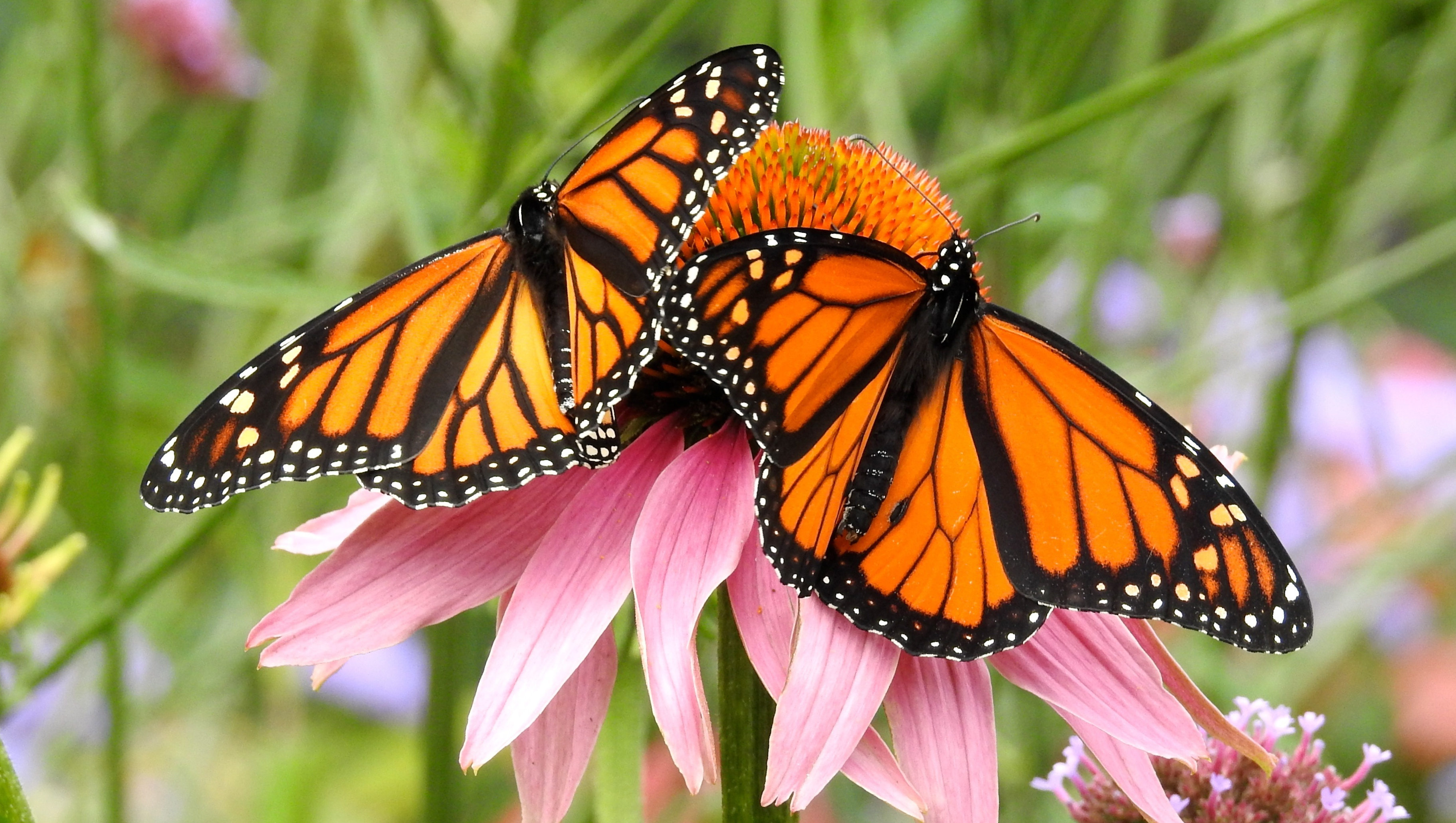
There’s nothing more delightful than watching butterflies visit your yard or outdoor space. With their beautiful vivid colors, butterflies also play a crucial role in our eco-system, from pollinating and enabling seeds and fruit production in our gardens.
However, the global decline of butterfly species due to extreme weather conditions and habitat loss means that any future sightings may become rare.
Luckily, there are ways to attract butterflies to your yard and provide a butterfly-friendly environment. Options range from growing their favorite flowers, putting out fruit, or even adding a butterfly house. Just remember when planting flowers to avoid using pesticides or herbicides as they can kill pollinators and also enter the food chain.
So, if you want to see more of these colorful little visitors, here are 7 ways to attract butterflies to your yard, and keep them coming back. Plus, here are 7 best plants to grow in clay soil.
1. Plant nectar flowers
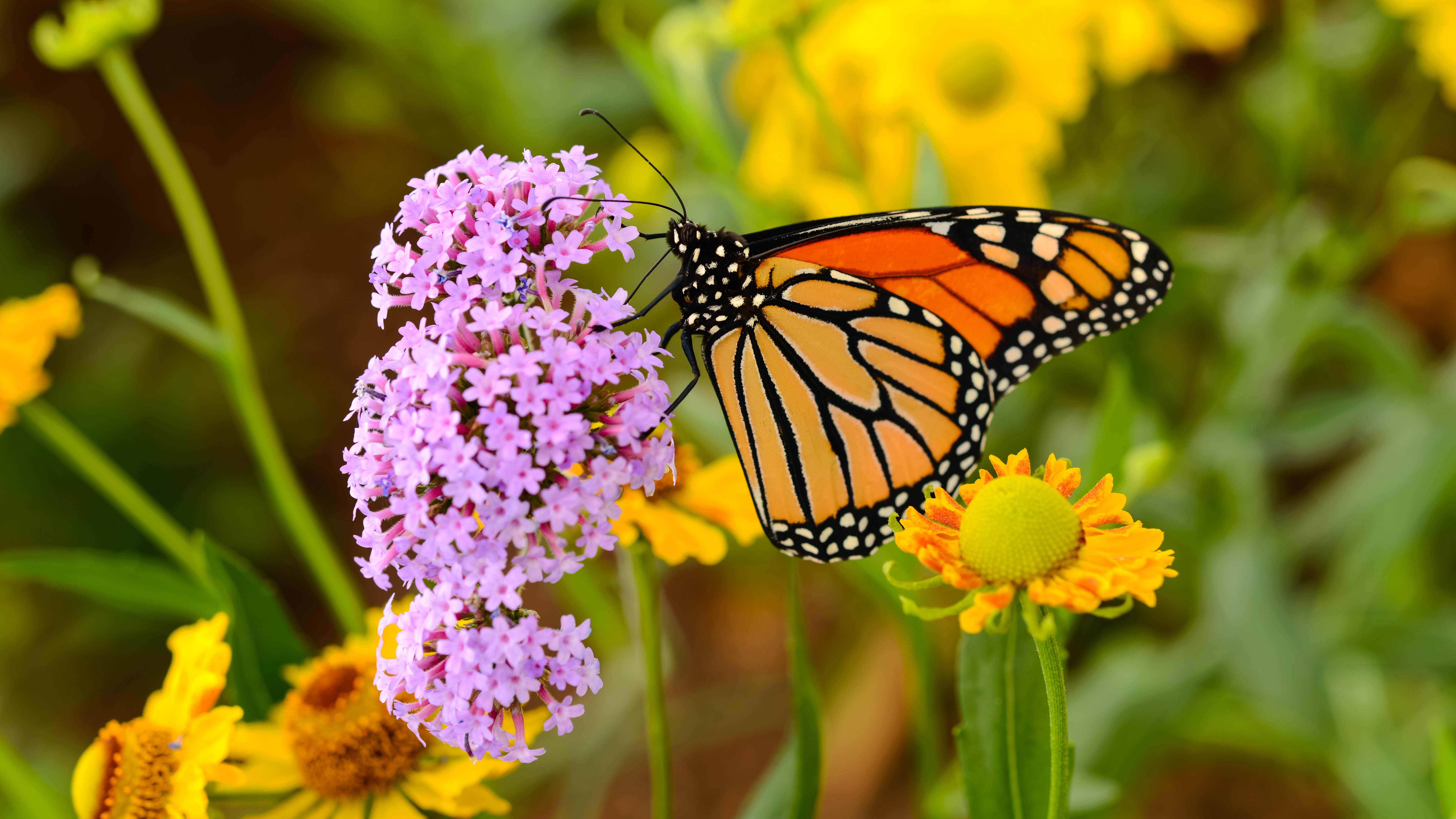
Although summer is the most common time we’ll see butterflies, they do need reliable food sources all year round. Grow nectar-rich flowers in the spring and summer months to attract them to your yard.
Top choices for your butterfly garden would include a range of pollinators including bluebells, verbena, chives, geraniums, dahlias, and certain herbs like oregano.
In particular, lavenders are a firm favorite of butterflies and bees, thanks to their nectar-rich flowers and fragrant stems. Ideally, your butterfly nectar-rich plants should receive full sun from mid-morning to mid-afternoon to thrive.
Sign up to get the BEST of Tom's Guide direct to your inbox.
Get instant access to breaking news, the hottest reviews, great deals and helpful tips.
2. Grow fruit trees
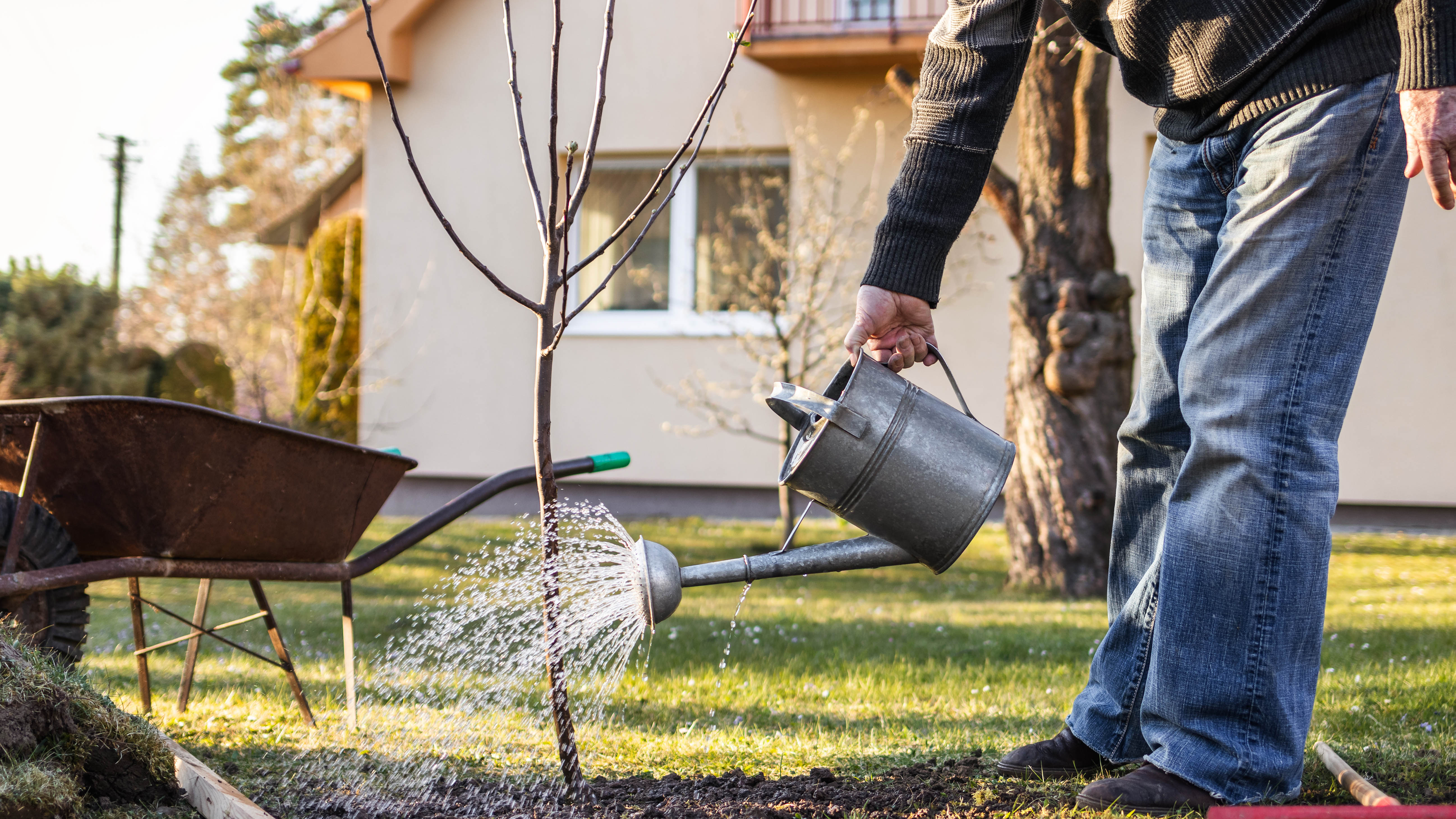
Since many butterflies love to sip on sweet nectar from flowers, fruit is also a great substitute. Alongside flowers, you can grow fruit trees or native berry-producing bushes. Fruits wil naturally drop to the ground and rot, providing a much needed food source for butterflies.
A butterfly can only "eat" liquid, which goes up into its proboscis and into its digestive system. That's why fruit sources have to be overripe with mushy texture for butterflies to easily extract juice. Rotting fruit is particularly appealing for certain species such as red admirals and mourning cloaks.
3. Leave out overripe fruit
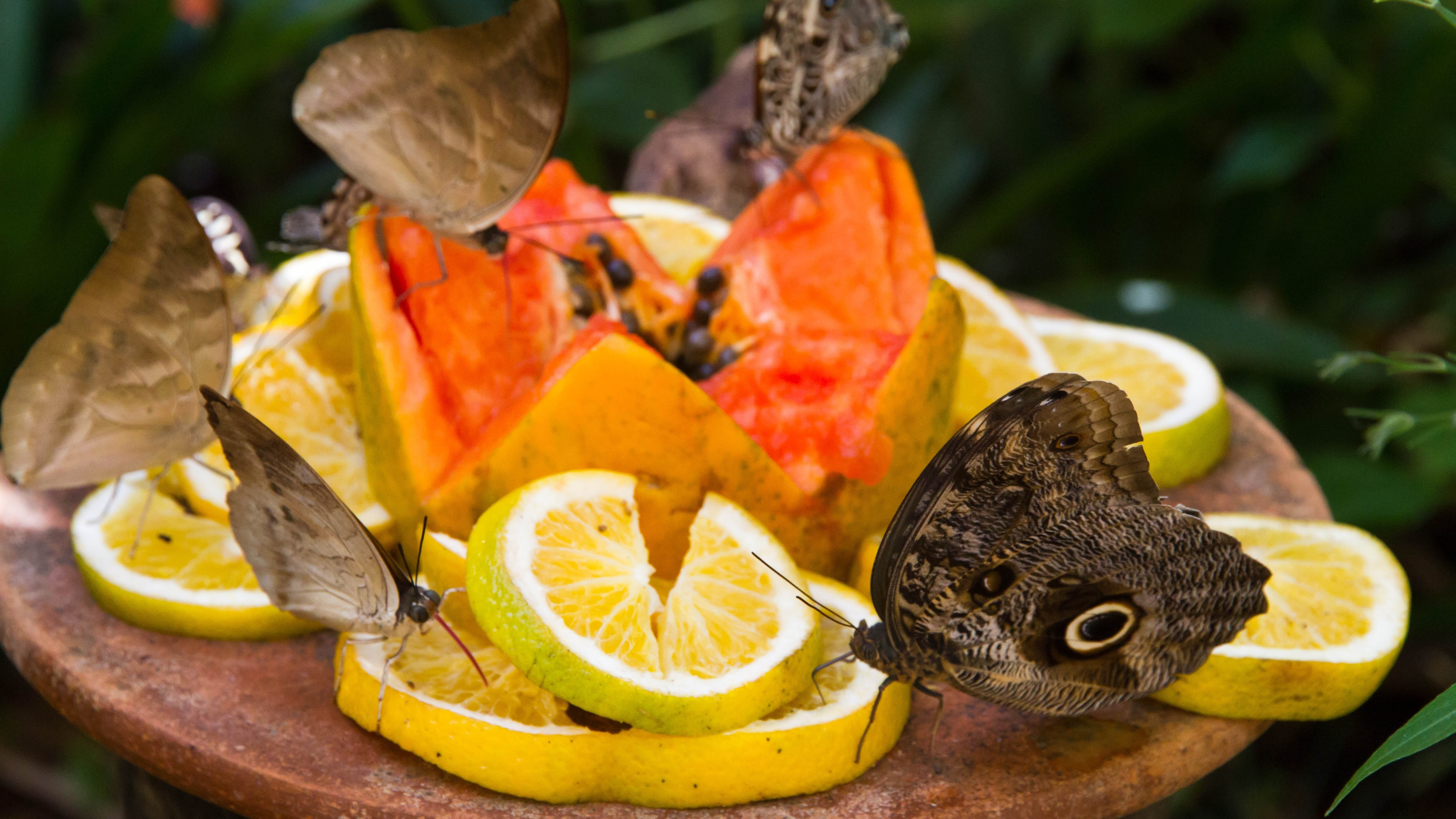
Alternatively, if your yard is too small for a fruit tree or shrubs, put out overripe, mashed fruit instead. Try setting out a plate of overripe bananas, citrus fruit, berries or juicy watermelon.
If you want to make it easier for the butterflies to sip on, simply add water to the mashed fruits. In addition, you can put out clean, fresh water in a shallow dish, adding pebbles in so that butterflies can drink safely.
Bear in mind that fruit sources in the yard can attract unwanted rats, raccoons or other pests. So be sure to clear up any mess dropped on the ground, and always bring in plates of fruit at night — never leaving them out for long periods during the day.
4. Hang a butterfly feeder
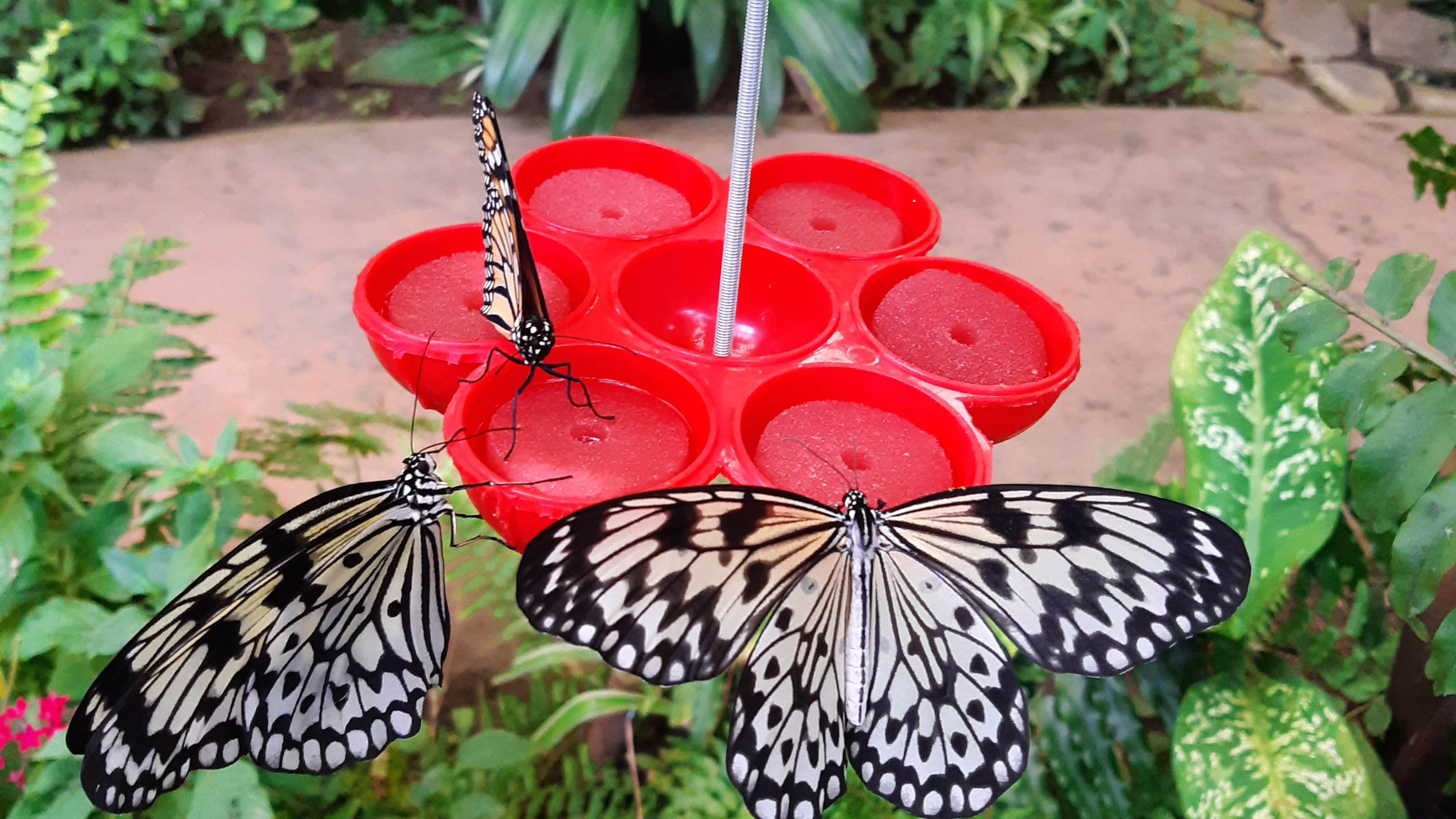
Similarly, you can invest in a butterfly feeder designed to attract butterflies to your yard. Feeders such as this Naturesroom Birds Choice Butterfly Feeder Kit ($34, Amazon), usually come with feeding cups, fruit trays and a built in moat.
These can either be hung on a wall, fence or post and make a great station for offering overripe fruit or sugar water. Ideally hang it near to nectar-rich flowers to provide a great landing platform.
You can make ‘butterfly water’ by simply boiling one part granulated sugar to four parts water in a pan. Then, once the sugar water fully dissolves, remove from the heat and set aside for a couple of hours. Allow it to cool completely before adding it to the feeding station. The sweet solution should attract plenty of butterflies to your yard.
5. Cut down on weeding
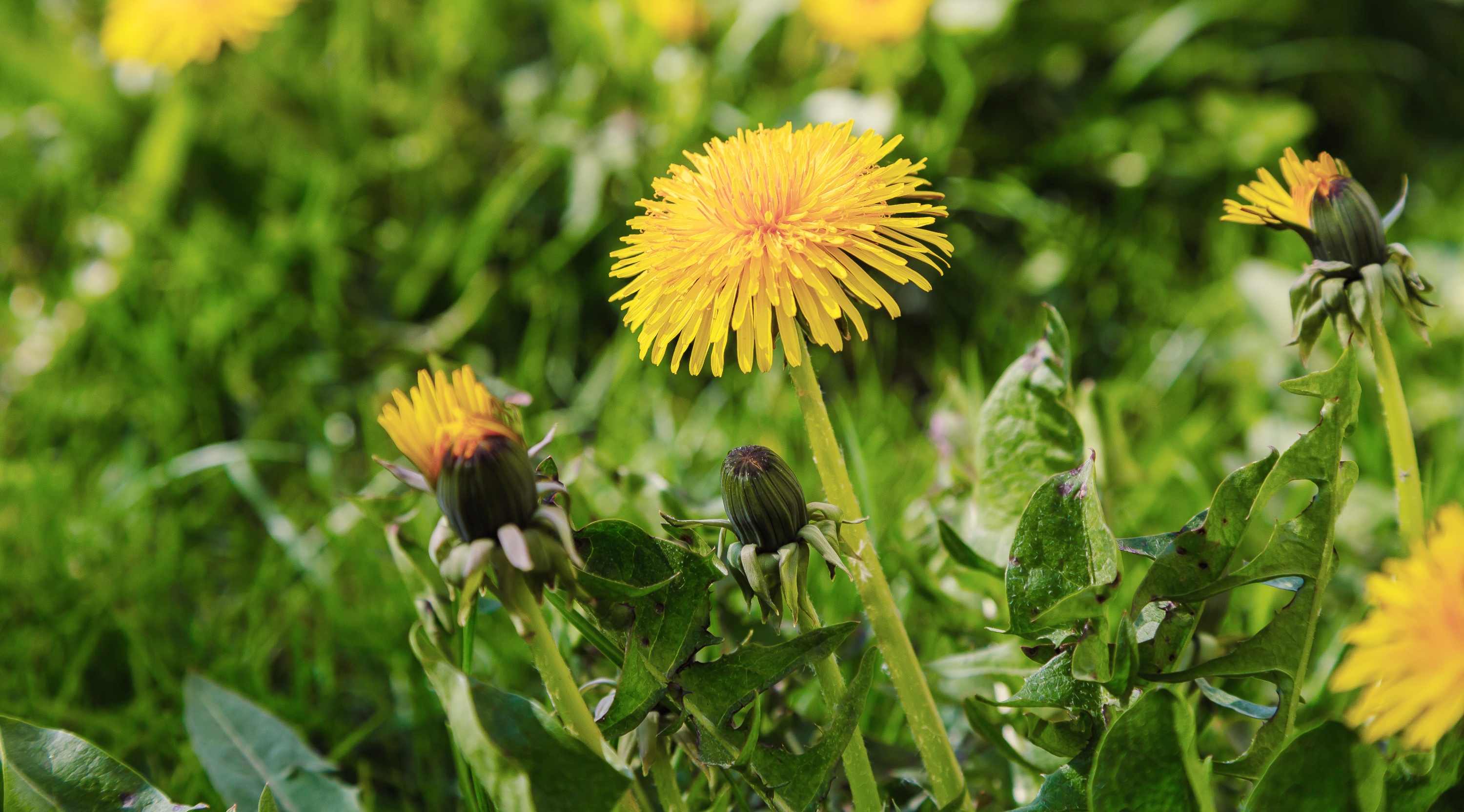
Weeds and dandelions are considered a nuisance, especially if you want to maintain a well-kept garden, However, these make the perfect habitat for butterflies to lay their eggs.
You can attract butterflies to your yard by allowing a part of your garden to grow wild. This can be achieved by not mowing the grass, and allowing nettles, thistles or ragwort to grow. In fact, weeds have evolved to fit with the breeding and feeding of native pollinators, providing shelter and a safe nesting space to lay their eggs.
While this may not be aesthetically pleasing in your yard, at least you’re doing your part in supporting the butterfly population!
6. Create a ‘resting’ place
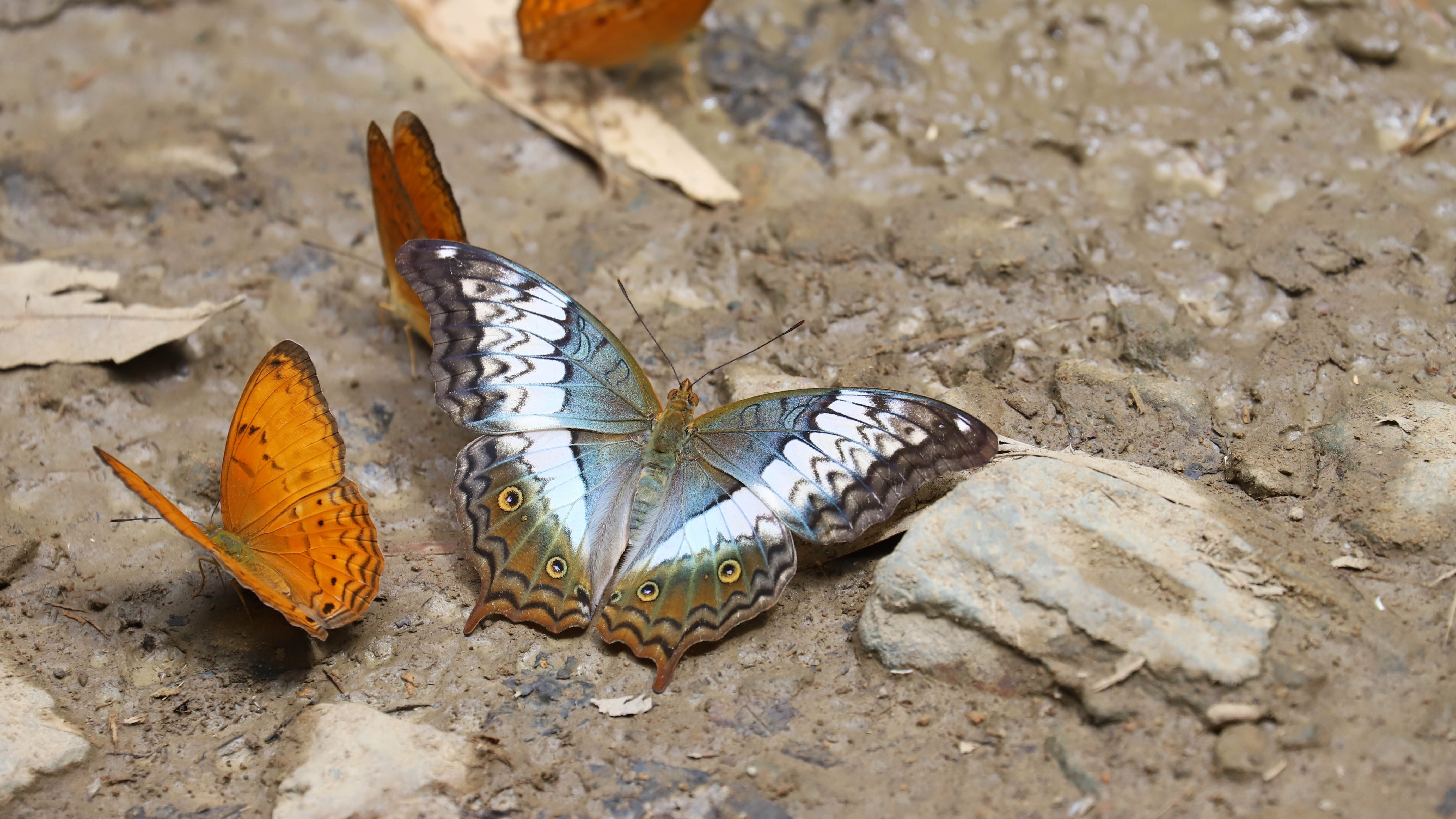
Even butterflies need to take a break, and rest their wings from time to time. Create a resting space by placing flat stones in a warm area in your yard.
What’s more, butterflies need sunlight for orientation and to warm their wings for flight, so ensure your place gets full sun. By providing this space, it allows them to rest well on the ground, as well as relax in the sun!
7. Provide a muddy spot
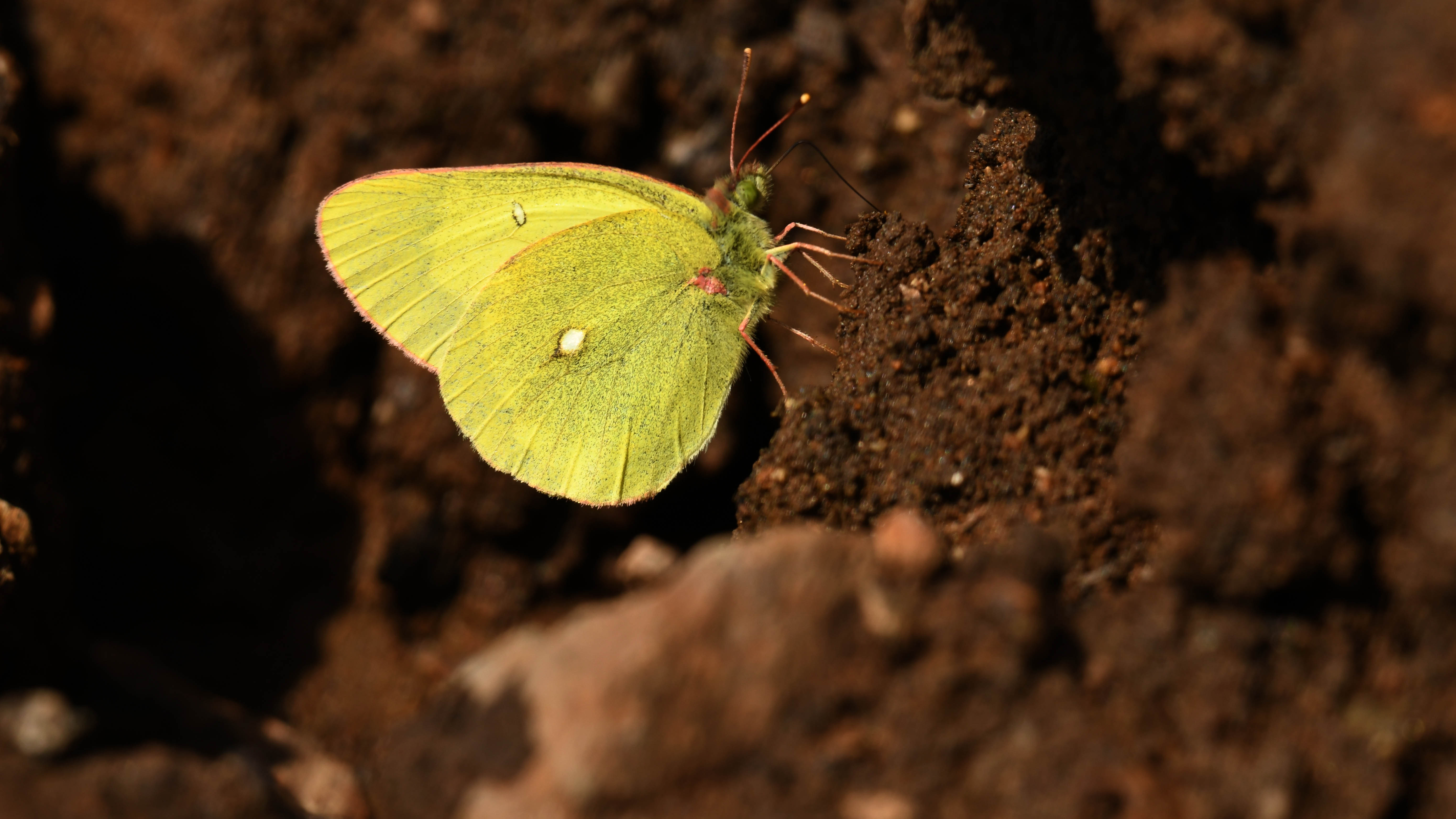
Similarly, if you have a muddy spot or puddles in your yard, this will be beneficial for attracting butterflies.
Male butterflies in particular like to cluster on mud puddles, where they can sip on valuable salts and minerals from the soil. Bear this in mind if ever you have a muddy area in your yard.
What colors attract butterflies to your yard?
Typically, adult butterflies are attracted to bright colors such as red, yellow, orange, pink and purple blossoms. This is because these bright flowers are the ones that produce the most nectar. These blossoms are usually flat-topped or clustered with short flower tubes.
More from Tom's Guide

As the Homes Content Editor, Cynthia Lawrence covers all things homes, interior decorating, and garden-related. She has a wealth of editorial experience testing the latest, ‘must-have’ home appliances, writing buying guides and the handy ‘how to’ features.
Her work has been published in various titles including, T3, Top Ten Reviews, Ideal Home, Real Homes, Livingetc. and House Beautiful, amongst many.
With a rather unhealthy obsession for all things homes and interiors, she also has an interior design blog for style inspiration and savvy storage solutions (get rid of that clutter!). When she’s not testing cool products, she’ll be searching online for more decor ideas to spruce up her family home or looking for a great bargain!
